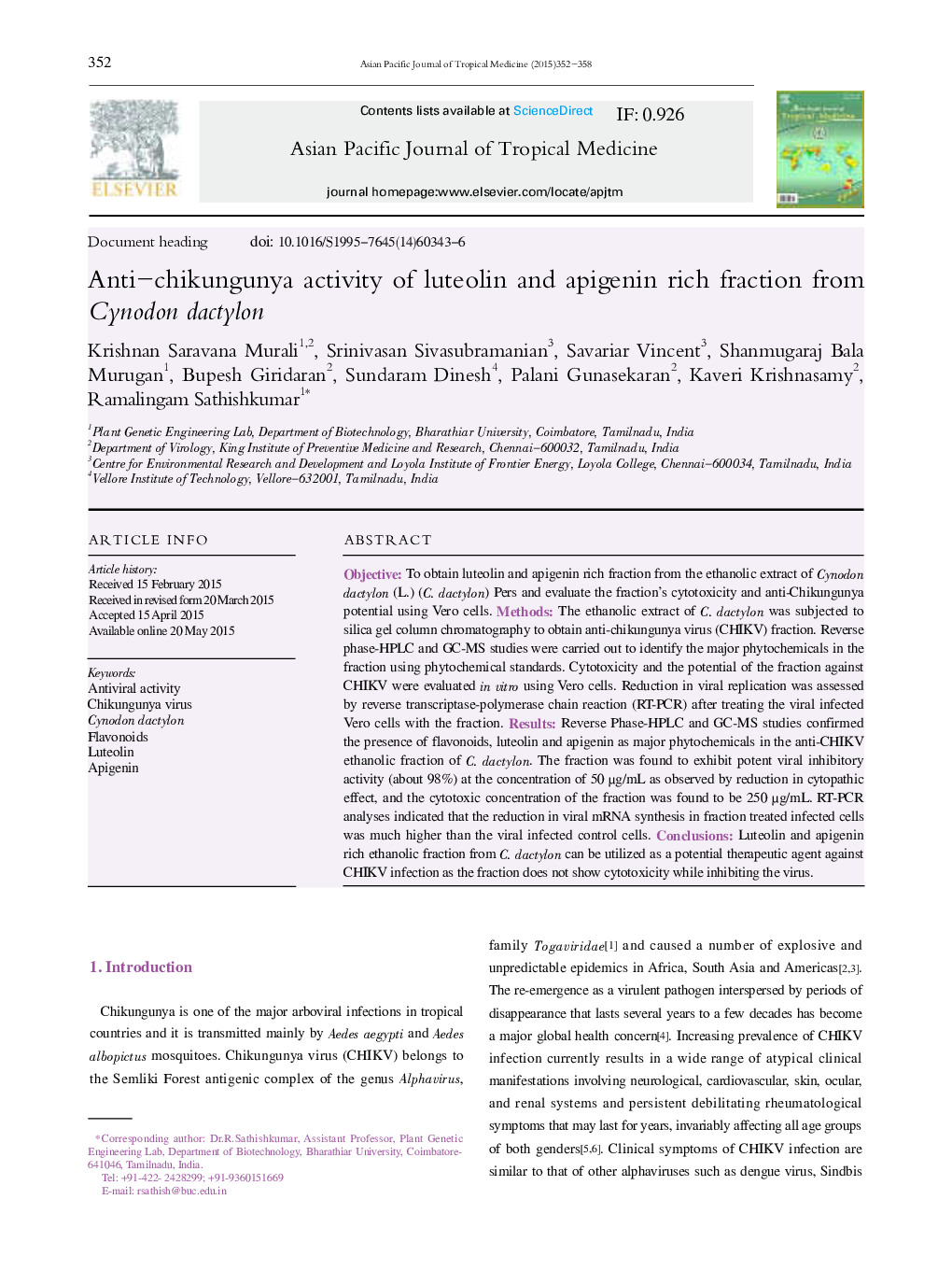| Article ID | Journal | Published Year | Pages | File Type |
|---|---|---|---|---|
| 3455377 | Asian Pacific Journal of Tropical Medicine | 2015 | 7 Pages |
ObjectiveTo obtain luteolin and apigenin rich fraction from the ethanolic extract of Cynodon dactylon (L.) (C. dactylon) Pers and evaluate the fraction's cytotoxicity and anti-Chikungunya potential using Vero cells.MethodsThe ethanolic extract of C. dactylon was subjected to silica gel column chromatography to obtain anti-chikungunya virus (CHIKV) fraction. Reverse phase-HPLC and GC-MS studies were carried out to identify the major phytochemicals in the fraction using phytochemical standards. Cytotoxicity and the potential of the fraction against CHIKV were evaluated in vitro using Vero cells. Reduction in viral replication was assessed by reverse transcriptase-polymerase chain reaction (RT-PCR) after treating the viral infected Vero cells with the fraction.ResultsReverse Phase-HPLC and GC-MS studies confirmed the presence of flavonoids, luteolin and apigenin as major phytochemicals in the anti-CHIKV ethanolic fraction of C. dactylon. The fraction was found to exhibit potent viral inhibitory activity (about 98%) at the concentration of 50 µg/mL as observed by reduction in cytopathic effect, and the cytotoxic concentration of the fraction was found to be 250 µg/mL. RT-PCR analyses indicated that the reduction in viral mRNA synthesis in fraction treated infected cells was much higher than the viral infected control cells.ConclusionsLuteolin and apigenin rich ethanolic fraction from C. dactylon can be utilized as a potential therapeutic agent against CHIKV infection as the fraction does not show cytotoxicity while inhibiting the virus.
